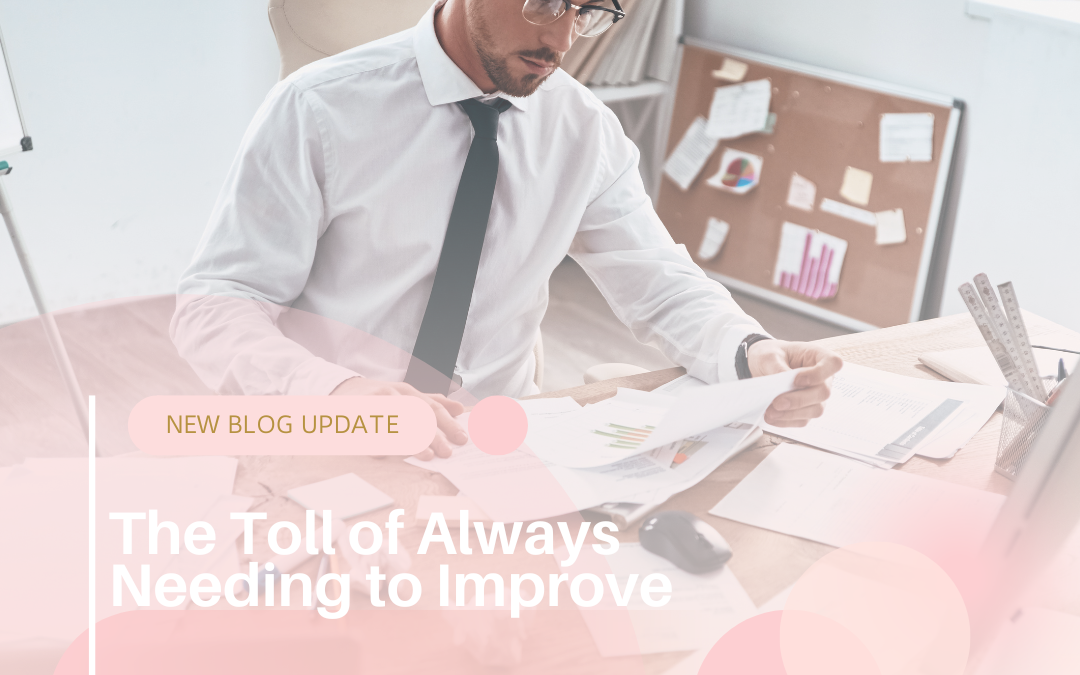In today’s world, rest is rebellion.
From the moment we wake up, we’re bombarded with messages urging us to do more, be better, optimize everything. “Wake up at 5AM.” “Build a morning routine.” “Be 1% better every day.” “Don’t waste time — hustle.” On the surface, these ideas promise growth and empowerment. But beneath the surface, they often breed anxiety, burnout, and a gnawing sense that we are never enough.
We live in the age of hyperproductivity — where self-worth has become tightly linked with how much we achieve and how efficiently we can do it. But what is the cost of always needing to improve? And who do we become when we’re never allowed to just be?
When Self-Help Becomes Self-Harm
There’s nothing wrong with personal growth. In fact, therapy is a space where people come to evolve. But there’s a difference between healing and hustling. Growth rooted in self-compassion sounds like:
“I want to feel more connected to myself.”
“I’m ready to work through what’s holding me back.”
“I deserve to live with more ease.”
Growth rooted in self-rejection sounds like:
“I’m not doing enough — I need to fix myself.”
“If I’m not improving, I’m failing.”
“Once I’m perfect, then I’ll be happy.”
When self-improvement becomes a constant chase for worthiness, it stops being healthy. It becomes another mask for shame.
The Pressure to Perform — Even at Rest
In hyperproductive cultures, even rest becomes something to master. You’re no longer just taking a walk — you’re walking to clear your mind so you can be more efficient later. You’re not just meditating — you’re meditating to improve your focus so you can get back to work. Even hobbies are monetized. Even leisure becomes strategic.
This mindset creates what psychologists call “toxic productivity” — the compulsive need to be productive at all times, often at the expense of mental, physical, and relational health. It’s not uncommon to hear clients say:
“I feel guilty when I’m not doing something productive.”
“I don’t know how to relax without checking my phone or making a to-do list.”
“If I stop pushing myself, I’m afraid everything will fall apart.”
When every moment must be optimized, rest feels like failure. And that’s a dangerous way to live.
The Mental Health Consequences
The toll of hyperproductivity isn’t just exhaustion — it’s disconnection from the self.
Over time, people living under this pressure often experience:
Chronic anxiety from never feeling “caught up.”
Perfectionism and self-criticism, especially when performance dips.
Burnout, even when doing things they used to love.
Depression or numbness, from living in a constant state of output without joy.
Loss of identity, as worth becomes dependent on doing rather than being.
Worse, these symptoms are often met with the same advice: try harder. But you can’t “optimize” your way out of emotional depletion. Healing begins when you stop performing and start listening — especially to the parts of you that are tired, scared, or grieving the loss of ease.
Choosing Rest as Resistance
In a world that idolizes hustle, choosing rest is a radical act.
It means:
Honoring your body’s cues instead of overriding them.
Decoupling your value from your productivity.
Letting go of the need to constantly fix yourself.
This doesn’t mean giving up on growth — it means redefining it. Growth doesn’t have to be intense or impressive. Sometimes, it looks like taking a nap instead of over-scheduling. Saying “no” without guilt. Listening to yourself without needing to earn it.
You are already enough, even before you improve.
How Therapy Can Help
Therapy is a space where you don’t have to be “working on yourself” every second. It’s a place to pause. To reflect. To just be.
Together, you and your therapist can explore:
Where the pressure to overachieve comes from.
What fears drive your need to constantly do more.
How to build an identity rooted in presence, not performance.
And most importantly, therapy can help you recover the parts of you that were never meant to be productive — the creative, playful, spontaneous parts. The human parts.
Final Thoughts
You don’t need to “earn” your rest. You don’t need to be perfect to be worthy of love, attention, or softness. The drive to improve is not a flaw — but when it becomes compulsive, it disconnects you from your essence.
So if you’re feeling tired — not just physically, but soul-tired — know this:
You don’t have to keep proving your value. You already have it.And healing doesn’t always look like hustle. Sometimes, it looks like stillness.
Feeling stuck in the cycle of always needing to do more? You’re not alone. Our therapists specialize in helping high-achievers reconnect with themselves, set healthy boundaries, and redefine success through a mental health lens. Reach out today — your nervous system will thank you.


Recent Comments